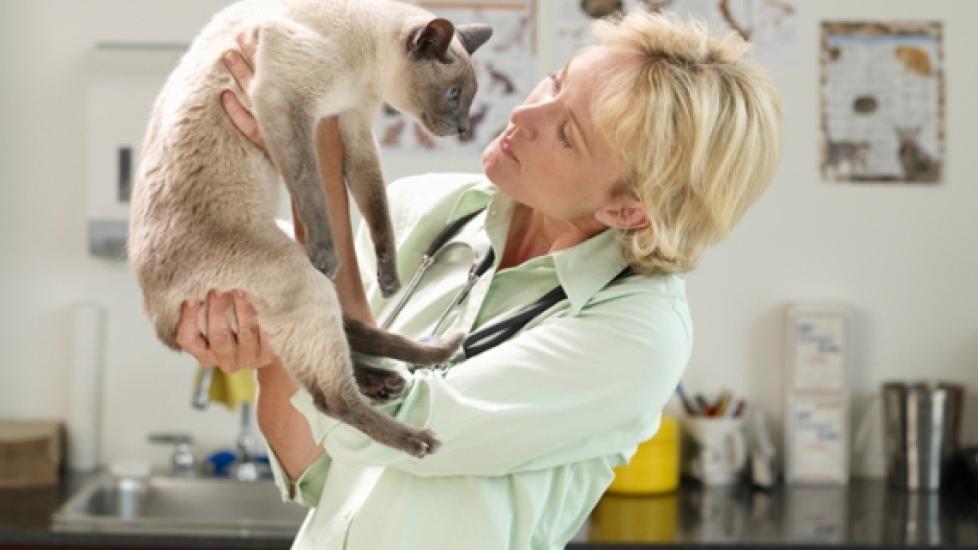Can You Boost Your Pet's Immune System? Maybe, Maybe Not
Owners often ask me what can be done to help “strengthen” their pet’s immune system following a diagnosis of cancer. Whether it’s a result of clever Internet advertising, heeding the advice of friends or family members, or any number of personal motivations, I find this often posed question both challenging and humbling.
In veterinary school, we learn the immune system exists akin to a seesaw in perfect balance. Disease exists when one end of the seesaw transfers too far towards either extreme.
If the balance falls towards the ground, the immune system is depressed, leaving pets susceptible to infection, and disease is an inevitable consequence. If the balance rises towards the sky, the immune system essentially operates in overdrive, attacking healthy cells; this is known as immune-mediated diseases.
A “boosted” immune system (if such a thing existed) could therefore be just as harmful as a depressed one. The goal should be for patients to maintain a perfect balance rather than tipping too far toward either extreme.
The expression “immune booster” suggests the immune system is akin to any other muscle of the body that can be worked out and supplemented in such a way as to strengthen it with conditioning and time. Unfortunately, such a view of this complicated body system is not only overly simplistic, but also completely inaccurate.
The immune system consists of innate protection, which is something organisms are born with. This consists of physical barriers to pathogens (e.g., the skin or mucous membranes). Signs of a healthy innate immune system include the itchy red bump you develop in your skin following a bee sting, or the annoying runny nose you have during a cold. I’m not sure that boosting either of those reactions will result in anything beneficial. In fact, an overzealous allergic reaction to a bee sting causes what is known as an anaphylactic reaction, which in its most aggressive form, can be fatal.
The other major components of the immune system include passive immunity and adaptive immunity. Passive immunity includes the transference of antibodies to a newborn from its mother during nursing. Passive immunity tends to be temporary, lasting only a few short weeks to months in duration. Therefore, it’s impossible to “boost” passive immunity in an adult organism.
Adaptive immunity occurs when antibodies are generated following vaccination or natural exposure to pathogens. I imagine this would be the “sole target” for enhancement in an adult organism. But when we delve deeper into the design and organization of the adaptive immune system, we find it is so incredibly complicated and so difficult to understand that the first question we must consider is what part exactly are we trying to boost?
Are we trying to enhance the efficacy of B-lymphocytes as they produce immunoglobulins to attack pathogens? Are we working towards making T-lymphocytes work more efficiently to lyse foreign particles? Are we attempting to create more effective cytokines to stimulate immune reactions? Do we want to fight intracellular or extracellular pathogens?
These are just a handful of the multitude of cellular and chemical reactions comprising the adaptive immune system. I would venture it’s impossible to simultaneously target all of these reactions and components with simple herbs and vitamins. Even if we could, would this be something beneficial for our cancer patients?
An “over boostered” immune system would be more likely to attack the body’s own healthy cells (i.e., what occurs in auto-immune disorders). So, if it truly is possible to stimulate immunity, is it really something desirable for a cancer patient?
Special consideration should be given to patients battling cancers of the immune system (e.g., lymphomas, leukemias, etc.). If we were truly successful in making a patient’s immune system work harder and more efficiently, could we somehow be compromising our patients’ health in the long run? Could we be working towards making cancers of the immune system “stronger” and more resistant to our therapies?
We must also consider how one of the hallmarks of cancer biology is that tumor cells develop, proliferate, and spread as a result of their ability to evade their hosts’ immune system. Cells committed to a cancerous lineage develop clever ways to avoid being detected by their hosts’ immune cells. Regardless of how much training and stimulation the immune system engages in, it remains unable to detect the “wolfish” cancer cells existing amongst the “sheepish” healthy cells.
I’m not suggesting cancer develops as a result of an inherent problem with the host’s immune system. Rather, disease occurs because cancer cells discover ways to avoid the immune cells designed to survey for their existence. Yes, certain cancers are more common in immunocompromised individuals; however, these tend to be the exceptions rather than the rules for most tumors. In many cases, once cancer develops, the immune system has already lost a battle it never even knew it was supposed to fight.
I’ve said it before, but I think it’s worth repeating my advice to owners to heed the proverbial “buyer beware” when it comes to those companies claiming their products will “boost” your pet’s immune system. They may only serve to weaken your wallets in the long run.

Dr. Joanne Intile
Image: Thinkstock
